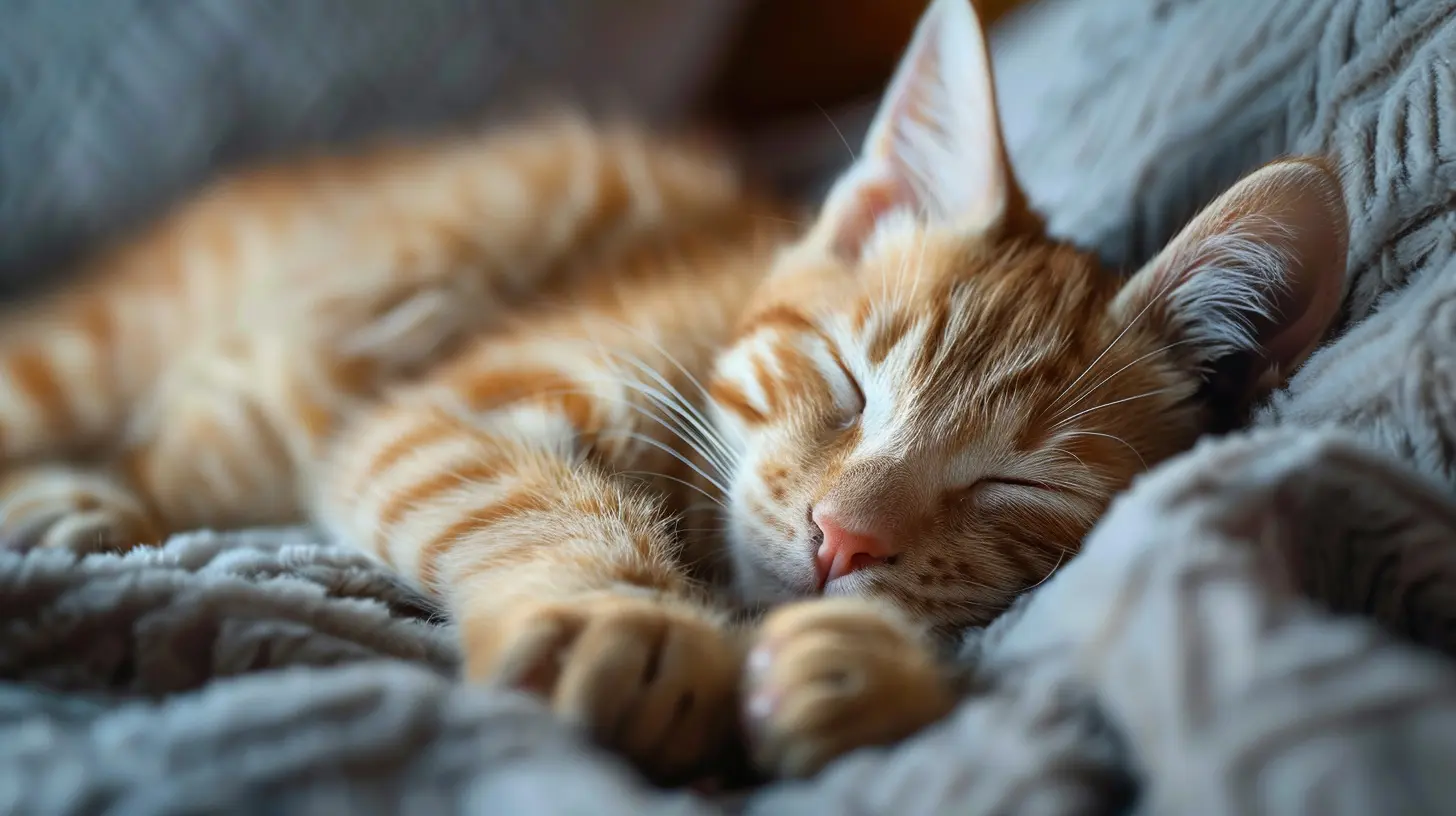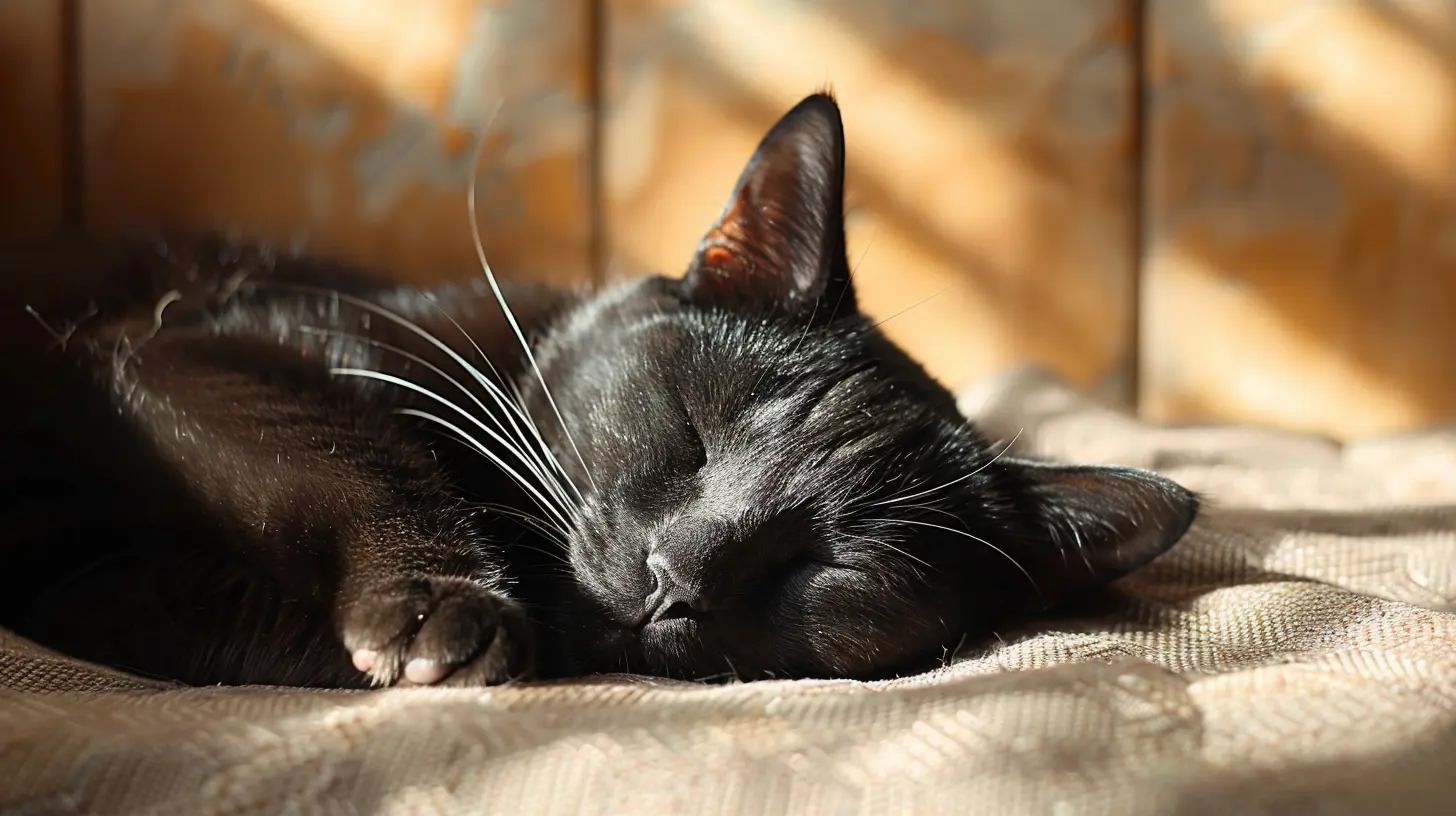How to Improve Your Sleep Environment for Optimal Rest
12 July 2025
Ah, sleep — that glorious, elusive creature that either cuddles you like a soft cloud or plays a cruel game of hide-and-seek. If you've been tossing, turning, and questioning all of your life choices at 3 AM, it's time for an intervention. And no, we don’t mean counting sheep (because let’s be honest, they just end up plotting against you).
The key to getting the kind of sleep that has you waking up feeling like a majestic, well-rested unicorn isn't just about how long you snooze—it's about where you snooze. Let’s talk about how to improve your sleep environment so you can finally get that deep, drool-worthy rest you deserve. 
1. Set the Mood: Lights Out, Energy Down
Ever tried to sleep with a lightbulb burning through your eyelids? Not exactly a recipe for sweet dreams. Your body's internal clock (AKA the circadian rhythm) depends on light cues to determine when it's sleep time and when it's "get-up-and-function-like-a-human" time.What You Can Do:
- Ditch the bright lights before bed. Switch to warm, dim lighting at least an hour before bedtime.- Invest in blackout curtains unless you enjoy waking up to the sun slapping you across the face.
- Blue light is your enemy! That phone screen? Tablet? TV? They emit blue light that tricks your brain into thinking it’s high noon. Consider blue-light-blocking glasses or a screen filter if you can't resist that final doom-scroll.

2. Mattress and Pillows: The VIPs of Snooze Town
Your mattress and pillows are the unsung heroes of your sleep. Sleeping on a terrible mattress is like lying on a sack of rocks and then wondering why your back sounds like bubble wrap in the morning.Upgrade Your Sleep Throne:
- If your mattress is showing you more sag than support, it’s time to part ways. Mattresses typically need replacing every 7–10 years.- Find a pillow that supports your sleeping style. Side sleeper? You need a thick, firm pillow. Back sleeper? A medium pillow is your buddy. Stomach sleeper? You might need a thin pillow (or rethink your choices entirely).
- Memory foam or latex can be a game-changer. They support your body without making you feel like you're sleeping on a medieval torture rack.

3. Temperature: No One Sleeps Well in a Sauna
Ever woken up drenched in sweat, questioning your existence? Yeah, a too-warm room is a one-way ticket to Toss-and-Turn City. Science says the ideal sleep temperature is around 60–67°F (15–19°C)—cool enough that you can snuggle under blankets but not so cold that you wake up looking for a parka.Keep It Chill:
- Set the thermostat to a sleep-friendly temp.- Use breathable, moisture-wicking sheets (cotton or bamboo work best).
- Consider a cooling mattress topper if you radiate heat like a human furnace.
- A small fan can double as white noise and a cooling agent. Win-win!

4. Sound: Tame the Midnight Noises
Unless you've achieved monk-level peace, no one enjoys random honking, loud neighbors, or the sound of your fridge deciding to be dramatic at midnight. Loud or inconsistent noise disrupts sleep faster than a toddler on a sugar high.Tune Out the Chaos:
- Earplugs work wonders, especially if you're blessed with a snoring partner (or a pet that thinks 3 AM is party time).- White noise machines can cancel out background noise with calming soundscapes like ocean waves or gentle rain.
- If you're tech-savvy, apps like Calm or Headspace offer sleep sounds and meditation sessions.
5. Declutter for a Calm Mind
A cluttered room = a cluttered mind. If your bedroom looks like a storage unit exploded, your brain can't fully relax.Simplify Your Space:
- Keep nightstands and floors clear of junk.- Store away unnecessary items—your bedroom isn't a dumping ground for unfolded laundry and half-read books.
- Choose calming colors for décor (soft blues, greens, and neutrals work best).
A minimalist, clean room helps signal relaxation, rather than chaos and responsibility.
6. Aromatherapy: Because Smell Matters
Ever walked into a spa and immediately felt tranquil? That’s the power of scent. Certain smells can cue your brain that it’s time to chill.Sniff Your Way to Sleep:
- Lavender, chamomile, and cedarwood are the MVPs of sleep-friendly aromas.- Use essential oil diffusers, pillow sprays, or even a few drops of oil on your sheets.
- Avoid overpowering synthetic scents—they can do the opposite and irritate your senses.
7. Pets in the Bedroom: Cute or Catastrophic?
We love our pets, but let’s be real—if Fluffy or Fido hogs the bed, steals your pillow, or starts random midnight zoomies, your sleep is doomed.Co-Sleeping with Pets: Yay or Nay?
- If your pet disrupts your sleep, consider getting them a comfy bed next to your bed instead of in it.- If you’re allergic, pet dander in your bed can make breathing harder than trying to fold a fitted sheet.
- But if your pet helps you feel secure and cozy, snuggle away—just set boundaries if needed.
8. Habit Check: Evening Rituals Matter
Your sleep environment isn’t just physical—it’s also about what you do before you hit the sack.Creating a Pre-Sleep Routine:
- Wind down at least an hour before bed. No work, no intense emails, and definitely no “just one more episode.”- Read a book (but nothing too thrilling). You want “mildly interesting,” not “edge-of-your-seat suspense.”
- Limit caffeine and heavy meals close to bedtime. That extra cup of coffee at 8 PM? Yeah, you're playing yourself.
A consistent bedtime routine conditions your brain to recognize when it’s time to shut down.
9. The Power of a Sleep-Friendly Bedtime Snack
Bet you didn’t expect snacks to make an appearance, huh? Certain foods promote better sleep by boosting melatonin and serotonin levels.Sleep-Boosting Bites:
- Bananas (magnesium + potassium = muscle relaxation)- Almonds or walnuts (natural melatonin source)
- Chamomile tea (because duh)
- A small bowl of yogurt (calcium helps produce melatonin)
Just keep it light—going to bed stuffed is a recipe for weird dreams and acid reflux.
Final Thoughts: Sleep Like You Mean It
Improving your sleep environment isn’t about drastic changes or buying a $5,000 mattress with built-in whisper mode (yes, that’s a thing). It’s about making small, intentional tweaks that help your body and brain recognize that your bedroom is for rest—not stress.So, dim the lights, fluff your pillows, spritz some lavender, and kick out whatever bedtime habits are sabotaging your zzz’s. Your future well-rested self will thank you.
all images in this post were generated using AI tools
Category:
Sleep HealthAuthor:

Laura Hudson
Discussion
rate this article
2 comments
Ian Harper
Small changes can yield big results!
March 3, 2026 at 3:53 AM
Georgina Bryant
Great tips on enhancing sleep quality! Creating a calming environment, reducing noise, and optimizing light levels can truly transform restful nights. Prioritizing a comfortable mattress and pillows is essential for rejuvenating sleep.
July 29, 2025 at 4:27 AM

Laura Hudson
Thank you! I’m glad you found the tips helpful. A comfortable sleep environment is key to rejuvenating rest!


